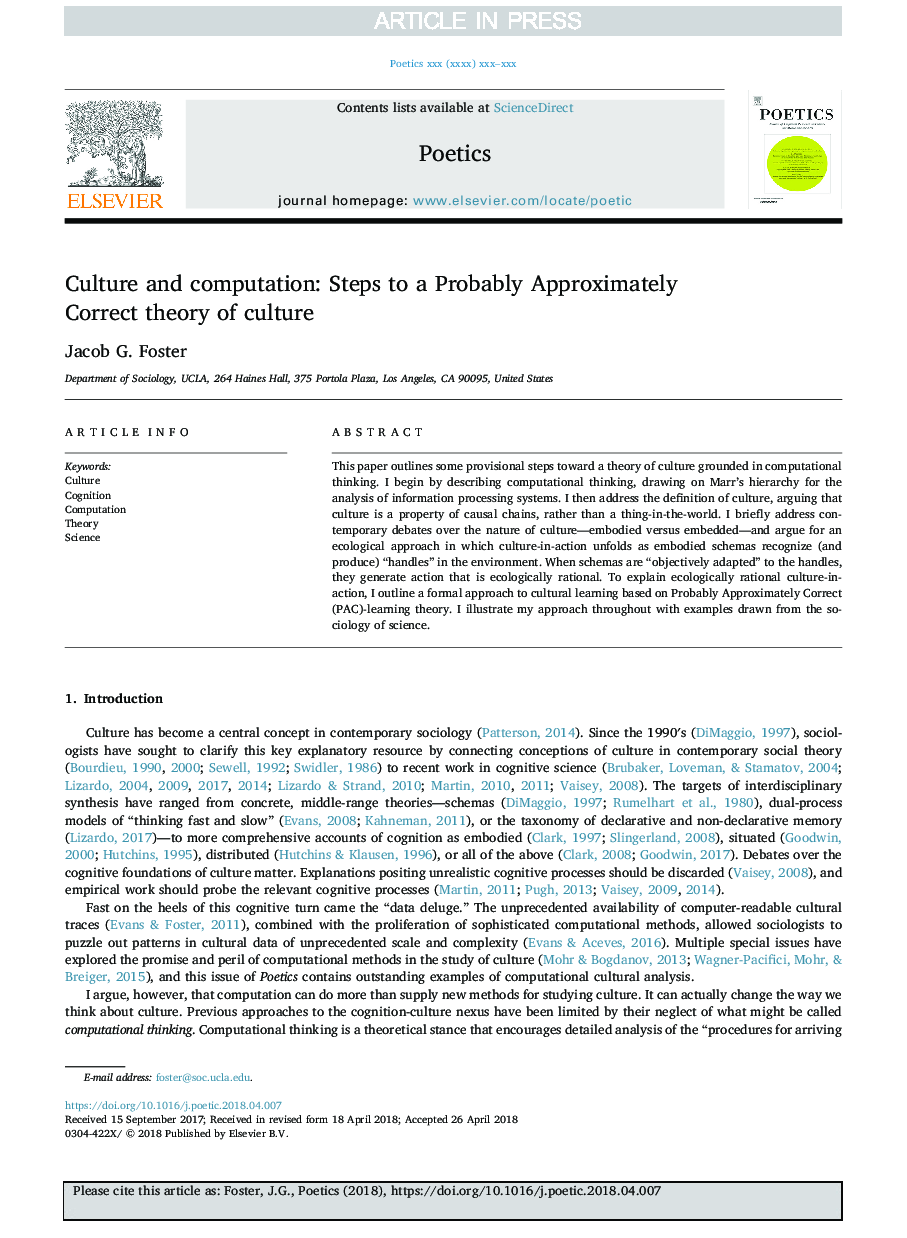| Article ID | Journal | Published Year | Pages | File Type |
|---|---|---|---|---|
| 7538094 | Poetics | 2018 | 11 Pages |
Abstract
This paper outlines some provisional steps toward a theory of culture grounded in computational thinking. I begin by describing computational thinking, drawing on Marr's hierarchy for the analysis of information processing systems. I then address the definition of culture, arguing that culture is a property of causal chains, rather than a thing-in-the-world. I briefly address contemporary debates over the nature of culture-embodied versus embedded-and argue for an ecological approach in which culture-in-action unfolds as embodied schemas recognize (and produce) “handles” in the environment. When schemas are “objectively adapted” to the handles, they generate action that is ecologically rational. To explain ecologically rational culture-in-action, I outline a formal approach to cultural learning based on Probably Approximately Correct (PAC)-learning theory. I illustrate my approach throughout with examples drawn from the sociology of science.
Related Topics
Social Sciences and Humanities
Arts and Humanities
Arts and Humanities (General)
Authors
Jacob G. Foster,
